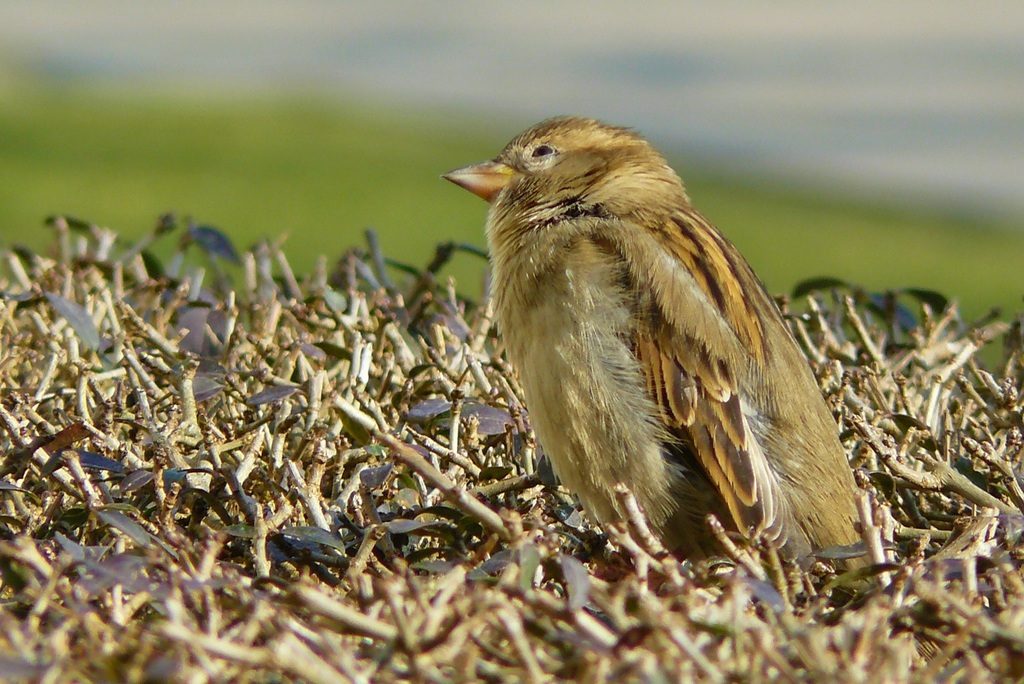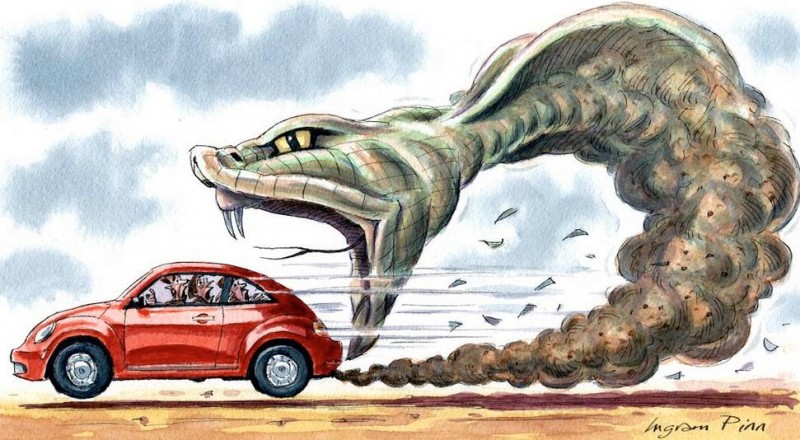Closed Season: lay down your trimmers and step away from the hedge

February 28th, 2020
Last May, TCD and UCD were found cutting trees and hedges on their campuses during the closed period designed to protect nesting birds and other wildlife. Environmental lawyer Dr Andrew Jackson explains why we should all respect the closed period from 1 March to 31 August, and how we can help wildlife during these months.
There seems to be a widespread misconception that the laws prohibiting vegetation cutting during the breeding and nesting season somehow do not apply in urban areas, in gardens or campuses, or that they only apply to farm hedgerows, for example.
Section 40(1) of the Wildlife Act 1976 creates two separate offences: first, under section 40(1)(a) it’s an offence for a person to cut, grub, burn or otherwise destroy, during the period 1 March to 31 August, any vegetation growing on any land not then cultivated.
The original version of this section referred to “any land not then cultivated or in course of cultivation for agriculture or forestry.” This wording was amended by the Wildlife (Amendment) Act 2000 to improve the protection for wildlife. That this was the intent is clear from the Oireachtas debates during the passage of the legislation.
Amongst other things the amendment removed the reference to land “in course of cultivation for agriculture or forestry” because landowners, relying on this wording, could clear valuable areas of wildlife habitat during the nesting season on the basis that this was allowed because the land was in course of cultivation for agriculture or forestry.

Given that the original exemption in section 40(1) applied only to land cultivated or in course of cultivation for agriculture or forestry, and this wording was amended to improve the protection for wildlife, it would be perverse if the effect of the amendment was to broaden the exemption beyond land cultivated for agriculture or forestry to allow cutting during the nesting season here, there and almost everywhere.
Focusing on legislative intent, it seems clear therefore that section 40(1)(a) was intended to exempt only land cultivated for agriculture or forestry and not, say, cutting during the nesting season on university campuses or in private gardens.
If we look in addition at a literal interpretation of the provision, we can draw some guidance from the Oxford English Dictionary’s definition of the adjective “cultivated” (and in turn “cultivation”), which supports this conclusion: “cultivated” land for section 40(1)(a) purposes refers to land used for crops/agriculture/forestry. Private gardens and campuses therefore generally have no claim to exemption from the s.40(1)(a) prohibition on cutting during the closed period.
Even if this were not the case, section 40(1)(b) of the Wildlife Act 1976 creates a second offence, which does not exempt “cultivated” land at all. Under this provision it is an offence to cut, grub, burn or otherwise destroy any vegetation growing in any hedge or ditch during the closed period. Note that this covers all hedges and not just “hedgerows”.
Limited exceptions to these offences are set out in section 40(2), including for example an exception for the destroying, in the ordinary course of agriculture or forestry, of any vegetation growing on or in any hedge or ditch; and works under the Roads Act 1993 to prevent a hazard or potential hazard to persons using a public road. The exceptions do not permit burning, nor do they exempt cutters who simply claim that they checked and didn’t see any birds or nests.
Section 22 of the Wildlife Act 1976 provides an additional layer of protection, making it an offence to, amongst other things, wilfully destroy, injure or mutilate the eggs or nest of a wild bird, or to wilfully disturb a wild bird on or near a nest containing eggs or unflown young.
“Wilfully” in this context needs to be interpreted consistently with the word used in the EU Birds Directive, which is “deliberate”. Note, however, that “deliberate” has been interpreted expansively in the nature conservation context by the Court of Justice of the EU to cover accepting the possibility, or knowing that the risk exists, and proceeding anyway. Again, limited exceptions are provided in section 22.
The implications of these provisions are clear, even if the law is widely flouted and poorly enforced: people – including domestic gardeners, landscaping companies, universities, etc. – should not as a general rule be out cutting hedges, trees or shrubbery in the period 1 March to 31 August.
If we respect this closed period this year, our gardens and public areas will be beautifully unkempt by the end of August and we will be repaid in wildlife come the autumn.

It’s worth considering this: even if domestic gardeners, campuses, landscapers etc. were explicitly exempted from these laws (which they are not), what should a gardener do? Cut during the breeding and nesting season or respect the closed period for no reason other than that it is the right thing to do for wildlife?
My guess is that most people sense instinctively that the closed period should be respected. And that’s before we even mention the biodiversity emergency.
Consider UCD: as soon as those responsible for campus maintenance were alerted to the problem last May they immediately put a stop to the cutting and made sure it did not restart until September, which was a great response.
It’s encouraging also to see the broader changes introduced recently on our campuses, in public areas and increasingly in private gardens – e.g. reduced mowing regimes and the creation of unmown wildflower areas to benefit bumblebees and other pollinators, the latest manifestation being TCD’s popular plan to create a wildflower meadow on College Green.
These sorts of changes are one result of the brilliant All-Ireland Pollinator Plan initiated by Professor Jane Stout of TCD and Dr Úna FitzPatrick of the National Biodiversity Data Centre. There’s a lot of talk in universities about maximising the impact of research. Well what greater impact than the changes we see increasingly around us – growing year by year – in our cities, towns and villages! Jane and Úna deserve every prize and accolade going.
The genius of the All-Ireland Pollinator Plan is this: every visible action for wildlife has a multiplier effect. With a little help from these excellent resources for gardeners, farmers and others in support of the Plan, everyone can join in this year.
A recent major UN report said we need “transformative changes” to conserve wildlife and help preserve a liveable planet. A step on this path of transformation would be for us all to give cutting a rest this year from 1 March to 31 August, reduce mowing, and spend time giving our threatened pollinators and other wildlife a helping hand.
By Andrew Jackson
Andrew is an Assistant Professor of environmental law at UCD with a degree in biodiversity and conservation. He is a member of the Access Initiative and Environmental Law Alliance Worldwide, two global alliances of public interest environmental lawyers, scientists and other advocates. Twitter @AndrewLRJackson







